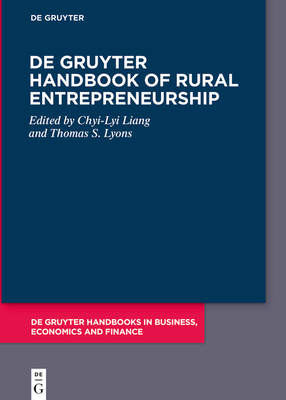Currently, there is limited theoretical framework or body of literature that defines the domain of rural entrepreneurship (Pato and Teixeira, 2014). Some theoretical frameworks exist in discussing general entrepreneurship, and many scholars have discussed the relationships between entrepreneurial decision making, innovation, desire to take control, and seeking higher values through change. However, the concepts of general entrepreneurship might not accurately and fully represent or explain the behaviors, decisions, choices, and social networks of rural entrepreneurs. The most recent review of rural entrepreneurship literature indicates that the prominent scholars of rural entrepreneurship research were from Europe. Most of the existing literature focuses on developed countries, and there are only limited empirical studies examining rural entrepreneurship associated with undeveloped or underdeveloped countries. Rural economic development and rural entrepreneurship have largely been explored through interdisciplinary research. Economists, sociologists, geographers, and historians have recognized issues in rural communities - a declining labor force and wages, decreasing social and economic capital, reduced investment in education and professional development, and a lack of catalytic industries or public policies to stimulate growth and wealth creation (e.g., Gladwin, et al. 1989). Interestingly, many scholars applaud the efforts of small businesses to revitalize rural prosperity and economic mobility. Rural small businesses also seem to be more resilient during economic shocks. Some of the most popular topics in rural entrepreneurship research relate to identifying key factors associated with entrepreneurial actions in rural areas, examining barriers and challenges imposed by institutions, analyzing gaps and opportunities related to infrastructure, and socio-demographic variables correlated to the likelihood of new venture creation in rural communities. For example, Kolawole and Torimiro (2005) applied factor analysis to identify key variables influencing rural entrepreneurship development and employment promotion. This study examined selected socio-economic variables such as work experiences and education. They also studied institutional and infrastructural situations as enhancers or barriers, other constraints and challenges, and ways to encourage rural entrepreneurship among local residents. The conclusions suggested that a lack of accredited facilities a











